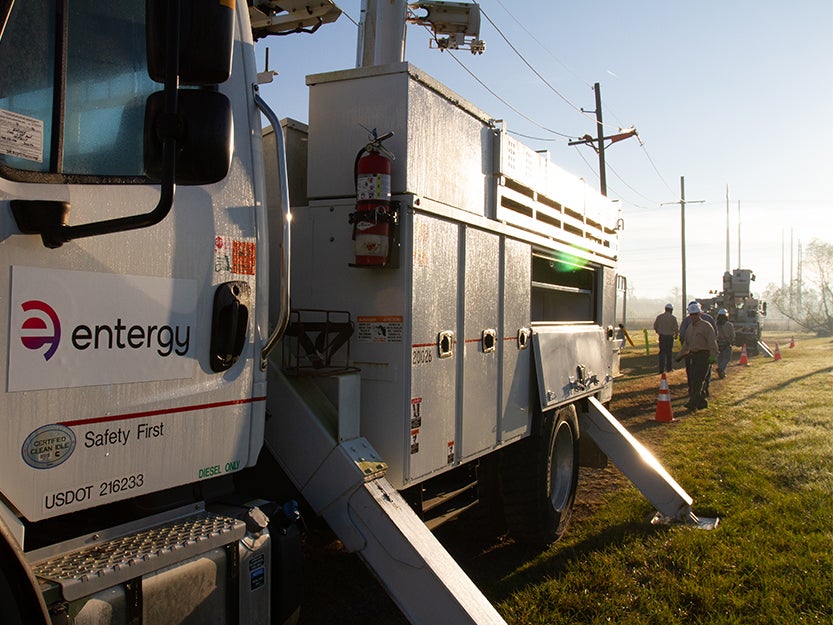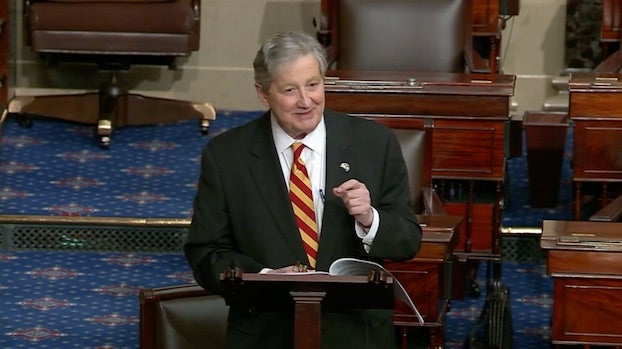Jim Beam column:Children, juveniles need help
Published 11:53 am Saturday, March 18, 2023

- James C. "Jim" Beam
Two problems Louisiana had in 2022 that deserve immediate attention from the Legislature proved damaging to our most vulnerable citizens — children and juveniles. Fixing what is wrong won’t be easy, but experts in children and family services have offered some excellent suggestions.
Two departments that need help are the state Department of Children and Family Services (DCFS) and the state Office of Juvenile Justice (OJJ). Problems plagued both agencies in 2022.
Rick Wheat, president and CEO of Louisiana United Methodist Children and Family Services, offered perhaps the best suggestion. His advice and tips from others were offered in special columns published in The Advocate.
Wheat said DCFS isn’t the only state agency struggling to deliver services to children. He mentioned OJJ and the Office for Citizens with Developmental Disabilities, which he said “labors to secure sufficient services for children.”
His suggestion: “Yet our state’s concerned parents have no designated official who hears and responds to their complaints. I am convinced that Louisiana requires an office of ombudsman for children.”
The newspaper described an ombudsman as a public servant who can investigate agency decision-making leading up to a child’s death, review systemic breakdowns and brief legislators and members of the public on any findings. They often file complaints from children in state custody as well as from their foster and biological parents.
Louisiana and three other states with no ombudsmen were ranked as the worst in 2021 for child well-being. Wheat said now is the time for the state Legislature “to add this vital tool to its child well-being toolbox.”
Parents are more likely to communicate their concerns to a state ombudsman, Wheat said, than to the employees of a state agency. “Fear of retaliation” is a critical factor in their decision to use the service.
Katherine Spaht, a retired law professor at LSU who chaired Gov. John Bel Edwards’ transition committee on children and family services, said prevention of problems is the key. She said there are some programs that assist in recognizing parents who are at risk and giving them support.
One program she mentioned enlists the birthing hospitals and trains hospital personnel to recognize signs of distress and the mother being overwhelmed at the beginning of a child’s life. There may be classes, she said, that teach a parent how to take care of a newborn and continuing classes as the child grows up.
Charles H. Zeanah, a professor of psychiatry and pediatrics at Tulane University School of Medicine, said DCFS workers are unquestionably overworked and underpaid. Recruitment and retention efforts are a major barrier to effective functioning, he said.
“Often overlooked, however,” he said, “is insufficient psychological support for workers. Confronted daily by painful and traumatic situations, they have limited opportunities to talk about their experiences in a supportive environment, a recipe for vicarious traumatization and burnout.”
Zeanah talked about a new model of foster care called the Quality Parenting Initiative (QPI). It is a collaborative relationship between DCFS, foster parents and biological parents, working together to ensure the child’s best interests are protected.
He said it goes against traditions that emphasize keeping foster and biological parents far apart and limiting information provided to foster parents. When it is implemented effectively, Zeanah said children feel supported by all adults in their lives when they experience uncertainty.
Susan East Nelson, executive director of the Louisiana Partnership for Children and Families, talked about workplace culture. She said one thing that would benefit DCFS the most is building a culture of reflective leadership.
That kind of leadership, she said, is characterized by three important skills: self-awareness, careful observation, and flexible response. Those in management positions should be leaders who empower their fellow workers by being aware of their own limitations, asking questions and being comfortable letting people know when they need help.
“It is my sense that front-line child welfare workers do not feel like they are part of a team, or that there is a team on which they can rely for support and assistance,” Nelson said.
Without that feeling, problems get deeper and deeper as the workers fear asking for help while trying to cover for their deficiencies. Nelson said culture, compensation, and resources will go a long way toward recruiting workers who genuinely care about their work.
Legislators need to create that ombudsman position for every agency dealing with children and juveniles. And they should call on these experts and others to ensure that this state’s families, children and juveniles get the protection and attention they deserve.




